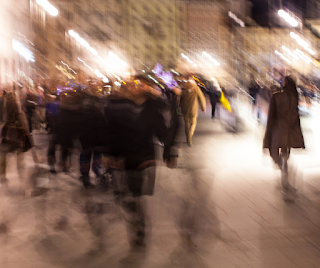A GLORIFIED BODY
Why do human beings die? Why is there death in humanity? According to the Scriptures, man was created perfect so that his original complexion endured even the presence of his Creator. Unlike the angels, who are spiritual beings, human beings are made up of "a synthesis of spirit and matter,"[1] a psychosomatic unity.The sacred text says: "Then the LORD God formed man from the dust of the ground and breathed into his nostrils the breath of life, and man became a living being" (Genesis 2:7) See also: Job 27:3; 33:4.
This union of spirit and matter is one of the great mysteries of man's being. The French Christian thinker Blaise Pascal, reflecting on this question, observes: "after all, what is man in nature?... Man is in himself the most prodigious object of nature, for he cannot conceive of what it is to be body and even less of what it is to be spirit and even less of how a body can be united to a spirit. This is the cumulus of the maximum difficulty and, nevertheless, its very essence.
It happens, however, that this synthesis, this spirit-body unity was changed at the time of the Fall, that is, at the moment of original sin. In that act, sin disoriented the man's spirit, making it impossible for him to continue living in the presence of his Creator. The human spirit started to no longer discern, see and understand God, another aspect of spiritual death. The other consequence of the first human sin was the deterioration of the body, which before was endowed with eternal life (Genesis 2.17), but now progresses in a path that culminates in physical death (Genesis 3:19).
In this way, man lives, today, the death of his original being. The synthesis has disintegrated, so that spirit and body no longer constitute a unique integrity. They are as if "detached" from each other. The spirit is already dead in relation to God and the body will soon decompose into the dust of the ground to which it will return (Genesis 3:19). It is a fact, however, that in this post-Fall existence, spirit and body still constitute man, but they subsist in mismatch. The spirit dreams, but the body does not always accompany him in his desires. This is more easily noticed in old age.
This, then, is the human drama: to be born to die and to leave for an eternal existence, separated from the Creator, in the mold of an indefinite, incomplete and shapeless being, a spirit without body, in a "lake of fire" (using the language of Revelation 20:15). Yes, for man defines himself only in God and his existence finds meaning only in the purposes of his Creator. For this reason, the life man lives today, in his state of Fall, expelled from Eden, is a divine gift, because in it man has the chance to take the way back to God's presence through faith in the sacrifice of his Son, Jesus Christ.
Jesus Christ is God himself who entered humanity like all human beings, but as fruit of a miracle, because he was conceived by the Spirit of God, without sin and without male participation, in the womb of a virgin. A perfect man with a spirit and a body. After living holy and inaugurating the Kingdom of God, he followed the path of all humanity, dying on a cross. But on the third day, the Spirit of God raised him from the dead, returning to life in a glorified body. The death and resurrection of Christ opened the way to the resurrection of the dead. So everyone who receives Christ as Lord and Savior will rise on the Lord's Day with a glorified body like that of Jesus. This means the end of death (1 Corinthians 15:54).
The Apostle Paul, writing to the Corinthians, comments on this matter, affirming that the Christian does not run the risk that the wicked, that is, he who does not fear God, runs. That is, to die and be without a body. He affirms that if "the earthly tent we live in is destroyed", that is, the body, the Christian has another, "in heaven," prepared by God (2 Corinthians 5:1-10). That is why Paul speaks, on another occasion, that "There are also heavenly bodies and there are earthly bodies... If there is a natural body, there is also a spiritual body" (1 Corinthians 15:40,44).
This Apostle teaches:
"Listen, I tell you a mystery: We will not all sleep, but we will all be
changed — in a flash, in the twinkling of an eye, at the last trumpet. For the
trumpet will sound, the dead will be raised imperishable, and we will be changed"
(1 Corinthians 15:51,52). See what he says to the Philippians: "...the
Lord Jesus Christ, who, by the power that enables him to bring everything under
his control, will transform our lowly bodies so that they will be like his
glorious body" (3:21). Thus the Christian, who places his faith in the
sacrifice of Jesus, will experience the glory of returning to the presence of
God with his vivified spirit and glorified body, ready to live according to the
purposes for which he was created.
Antônio
Maia - M. Div.
Copyright
KIERKEGAARD, Soren A. O Conceito de Angústia. Petrópolis-RJ: Ed Vozes. 2010, p.52
PASCAL, Blaise. Pensamentos. São
Paulo: Ed Abba Press. 2002, p.61,67



Comments
Post a Comment